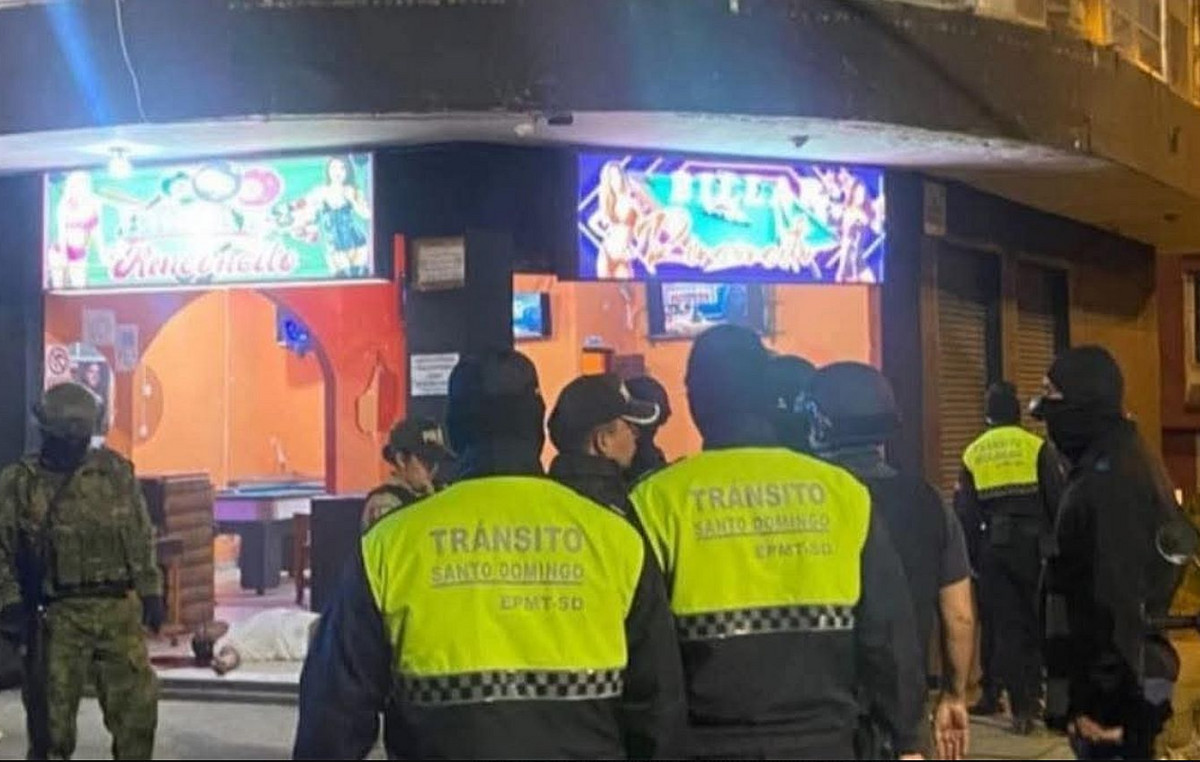After spending years traveling the world in the service of the US Armed Forces, Christopher Boris I dreamed of one day moving abroad.
But the retired veteran, who grew up in New Jersey and lived in Maryland at the time, eventually anticipated his plans after having difficulty dealing with the increase in cost of living.
“There came a point where I could no longer pay the mortgage or home bills,” Boris told the CNN TRAVEL .
“It was difficult. I lived with the benefit of VA disability,” he says, referring to the aid free of taxes granted to veterans with disabilities. “And I thought, ‘I think my money can yield much more living abroad.’
Quality of life
In 2024, Boris and his wife Maria Jesus from Bolivia left the United States to start his life in Brazil. “I just didn’t play the American dream” says.
According to Boris, the financial difficulties had lasted at least five years, but the situation worsened once and for all after he left his job in the government in 2022.
“It was a decision that took a year to mature,” he adds. “My wife and I always talked about living out.”
Although they considered the possibility of going to Bolivia, the couple eventually opted for Brazil, where they had lived between 2007 and 2008, when Boris was assigned there.
“We chose Brazil, and Rio de Janeiro specifically, due to the highest quality of life,” explains Boris. He points out that previous experiences with the Brazilian health system were very good and knew that they could live comfortably in the country.
“We had first -time doctors. All first… You have access to many good quality services. This was one of the positive points that weighed on the decision.”
After making the difficult decision to leave Maryland, they began to organize the change and decided to sell the three -bedroom house.
“We decided to sell the property the way it was, because I no longer had money to make the repairs,” says Boris.
The couple, who have three children, arrived in Rio de Janeiro in July 2024, accompanied by the youngest, Andrew 24, who works remotely.
They moved to an apartment of a room in Leblon, a noble neighborhood of the south of Rio, near Ipanema, and began to dedicate themselves to adaptation and living with the local community.
Sense of belonging
Boris says they quickly felt at home in the new neighborhood and loved the ease of getting around.
“We didn’t need it by car because we could go anywhere by taxi,” he says. “Simple things like shopping, buying bread, going to a restaurant, cutting your hair…”.
And continues: “Everything was within our reach. To one, two or at most three blocks away. That was something we valued a lot.”
Although he spoke Spanish and had learned a little Portuguese at the time he was in the country for the first time, Boris was still far from fluency.
Even so, he states that this did not represent a major obstacle and that he was able to make friends with relative ease.
“It seems that there is more sense of community here “Says Boris.” Even without relatives around … people are more friendly with me. “
He explains that he finds Brazilians calmer and less obsessed with money.
“People here are a little more relaxed,” he notes. “And it’s not as stressful as in the United States, or how people imagine it is. Because everything revolves around making money all the time.”
“But here, it’s not about it. It’s more about building other things like friendships.”
Although his language domain has improved over time, Boris admits that he still finds difficulties.
“It’s more colloquial…”, he explains. “I mean, sometimes I’m stopped and someone starts talking close to me, and I understand almost nothing.”
And adds: “But they talk directly to me, I understand. It’s kind of funny.”
A lighter lifestyle
Boris entered Brazil with a tourist visa and then requested a retired visa, available to people over 60 who receive at least $ 2,000 per month (R $ 11,200) in retirement. This visa allows you to stay in the country for a year.
“The biggest obstacle was to get the FBI -required fingerprints,” he says, explaining that he needed to present a US criminal history as part of the process – which can be renewed for another year.
“How to get the FBI fingerprints here in Brazil, without being in the United States and without having a proper place for it? I still need to solve this for the next renewal.”
He plans to request permanent residence in Brazil soon. As he and his wife had lived in the country before, even if for a short time, they had some familiarity with Brazilian culture and did not face great difficulties in adaptation.
Still, Boris confesses that he had to get used to a specific detail: the way of dressing of Brazilians.
“People show the body more,” he says. “It has to do with personality, but also with the appearance.”
Although his dress style has not changed much, he adhered to an essential item: slippers. It almost always has its pair of the iconic Brazilian brand Havaianas. “I use it all the time,” he says. “They turned my day to day shoes.”
In terms of cost of living, Boris says he and his wife have managed to greatly improve the standard of living And they don’t worry so much about money as before.
“The dollar yields right here,” he says, recognizing that the country is more accessible to foreigners than to Brazilians themselves. “I lead a very comfortable life. I just need to maintain a budget … I have to be careful.”
Since moved to Rio, Boris estimates saving about $ 1,000 per month (R $ 5,609,000) only with rent and also spends very little on food.
“The food, in general, is much cheaper,” he says, saying he can do a Healthy snack with drink for about $ 2 (R $ 11).
“We shopping about two or three times a month. In the United States, we were going almost every day, because my wife doesn’t like to freeze meat. She prefers everything fresh.”
Despite the financial clearance, Boris makes a point of saying they don’t live with luxury and need to keep their feet on the ground.
“I have a budget now,” he reinforces. “So I don’t spend like a tourist.”
Security issue
Brazil is known for having one of the largest income inequalities in the world and Boris is aware of the country’s problems. The US State Department classifies Brazil as “Level 2: Redes attention”.
“The sad side of the city is that there is poverty,” he notes, noting that this is often linked to crime.
US warning recommends avoiding certain areas, especially close to borders, and warns tourists about the risk of crime. “You need to be aware,” says Boris. “There are neighborhoods that is better to avoid.”
Still, he observes with irony that many of the friends he made live precisely in these areas. “Most of the good people I met live in slums,” he says, referring to low-income communities in Brazil. “These are very friendly people …”.
“But the problem is that the place where they live is not always safe, because there are traffickers controlling certain regions.”
Although he has never really felt insecure in the country, Boris acknowledges that “anything can happen at any time.”
“I don’t want to look too confident,” he says. “And I’m not saying that the danger does not exist … but we prefer to stay in safer areas.”
More social life
Looking at the past, Boris realizes that in the United States, he missed social coexistence. “In my last 10 years there, I was just going to work, I worked, I came home, and each lived in his own,” he says.
“We had neighborhood parties in Maryland, but still, I thought people weren’t so receptive. I didn’t feel this human warmth…” he says.
“People were rigid … here, I have much more social interaction than in the United States.”
As a retired – and a self -declared “night” – Boris has plenty of free time and usually spend the nights talking to friends, including his barber and other residents or merchants of the neighborhood in Ipanema.
“We had fun listening to music and talking about simple things,” he says, saying his friends nicknamed him as a “chimney.”
“I smoke a little,” he admits, laughing.
Boris has also become a fan of Brazilian football and loves to accompany the heart team, Flamengo. “So far I went to one game, but I loved seeing Flamengo in Maracanã,” he says. “I want to go to others soon.”
After less than a year living in Rio, Boris can no longer imagine himself elsewhere. “I like architecture,” he says. “I like the beach. I like the way the city is organized and natural beauty.”
“There is Christ the Redeemer, the huge lagoon, the sea … and the samba clubs. I enjoy it all.”
Despite living a few minutes from the famous beaches of Ipanema and Copacabana he says that going to the beach is no longer new, and that he doesn’t even feel like going every day.
“There are days when I don’t even go,” he says. “I stay three, four days without stepping in the sand, even though they are two blocks away.”
Boris still Visit the United States once a year To see family and friends, but do not intend to live there again. For him, it no longer makes sense to try to live “the standard of life.”
“It’s a relief no longer having to deal with the financial weight I had in the US,” he concludes.
The US military post moves to Brazil: “No longer playing the American dream” APPEARED FIRST ON CNN BRAZIL V&G.
Source: CNN Brasil
Johanna Foster is an expert opinion writer with over 7 years of experience. She has a reputation for delivering insightful and thought-provoking articles on a variety of subjects. Her work can be found on some of the top online news websites, and she is currently lending her voice to the world stock market.







